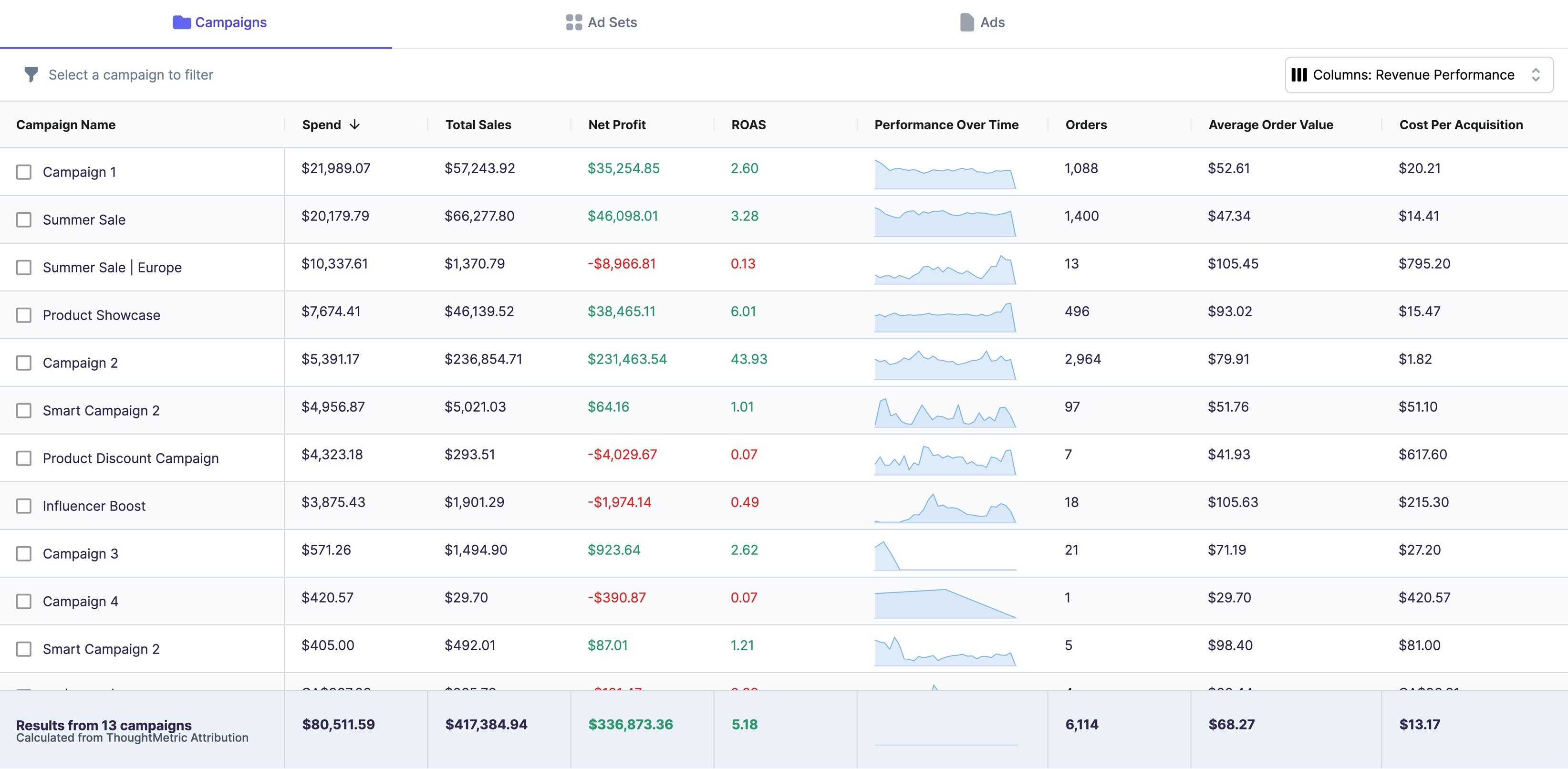If you're looking to start advertising on Facebook, understanding cost per click (CPC) is crucial. CPC helps you determine how much you'll pay for each click on your ad, making it easier to plan and optimize your budget. In this comprehensive guide, we'll cover everything you need to know about calculating CPC in Facebook Ads Manager.
Understanding Cost Per Click (CPC) and Its Importance
Before we dive into the specifics of calculating CPC, let's first discuss what it is and why it's important. CPC is a measure of how much you pay for each click on your ad. When someone clicks on your ad, you pay a fee. CPC helps you understand how much each of those clicks costs.
CPC is important because it directly impacts your advertising budget. By knowing how much each click costs, you can plan and adjust your budget to ensure you're getting the most out of your advertising spend. Plus, understanding CPC allows you to optimize your ads to increase their performance and generate more clicks at a lower cost.
For example, let's say you're running a Facebook ad campaign for your new clothing line. You've set a budget of $500 for the campaign and you're hoping to generate at least 100 clicks to your website. If your CPC is $5, you'll need to generate at least 100 clicks to stay within budget. However, if your CPC is $2, you can generate up to 250 clicks and still stay within budget.
What is Cost Per Click (CPC)?
Cost per click (CPC) is the amount of money an advertiser pays each time a user clicks on their ad. It's calculated by dividing the total cost of the ad campaign by the number of clicks generated by the campaign. CPC is typically used to measure the effectiveness and cost efficiency of online advertising campaigns. It's an important metric because it helps advertisers determine how much they need to spend to achieve their desired results.
For instance, if you're running a Google AdWords campaign, you'll bid on specific keywords to have your ad appear when someone searches for those keywords. The amount you bid on those keywords will determine your CPC. If you bid too low, your ad may not appear at all, but if you bid too high, you may end up paying more than necessary for each click.
Why is CPC Important for Your Facebook Ads?
CPC is important for your Facebook ads because it determines how much you'll pay for each click on your ad. Essentially, if you're paying too much for each click, you're wasting your advertising budget. By understanding CPC, you can create more effective ads and optimize your campaigns to achieve better results at a more affordable cost.
Facebook offers several tools to help you optimize your CPC, including the Facebook Ads Manager and the Facebook Pixel. The Ads Manager allows you to track the performance of your ads and adjust your targeting and bidding strategies accordingly. The Facebook Pixel is a piece of code that you can add to your website to track conversions and optimize your ad campaigns based on user behavior.
Overall, understanding CPC is crucial for any online advertiser. By monitoring your CPC and optimizing your ad campaigns, you can achieve better results and maximize your advertising budget.
Setting Up Your Facebook Ads Manager Account
Before you can start creating ads and calculating CPC in Facebook Ads Manager, you'll need to set up an account. Here's a step-by-step guide:
Creating a Facebook Business Page
The first step is to create a Facebook Business Page. This is where you'll manage your ads and track their performance. To create a Facebook Business Page, log in to your personal Facebook account and click on "Create" in the top right corner of the screen. Then, select "Page" and follow the prompts to create your business page.
Navigating the Facebook Ads Manager Interface
Once you have your business page set up, navigate to Facebook Ads Manager. This is where you'll create and manage your ad campaigns. The Ads Manager interface can seem overwhelming at first, but it's fairly simple once you get the hang of it.
The main areas of Ads Manager include the Campaigns tab, the Ad Sets tab, and the Ads tab. In Campaigns, you'll create and manage your different advertising campaigns. In Ad Sets, you'll define your target audience and set your budget. In Ads, you'll create your actual ads.
Creating a Facebook Ad Campaign
Now that you have your account set up and understand the basics of Ads Manager, it's time to start creating your ad campaign. Here's how:
Choosing Your Campaign Objective
Before creating your campaign, you'll need to determine your objective. Facebook offers several campaign objectives, including brand awareness, traffic, and conversions. Each objective is designed to help you achieve a specific goal. Choose the objective that best aligns with your advertising objectives.
Defining Your Target Audience
Once you've chosen your objective, it's time to define your target audience. This is a crucial step in creating effective ads. Facebook offers a wide range of targeting options, including location, demographics, interests, and behaviors. Use these targeting options to define your ideal audience.
Setting Your Budget and Schedule
The final step in creating your campaign is to set your budget and schedule. Determine how much you're willing to spend and when you want your ads to run. Facebook offers several budgeting options, including daily and lifetime budgets. Choose the option that works best for your campaign.
Once your campaign is up and running, it's crucial to monitor its performance. Facebook Ads Manager provides a wide range of metrics and data to help you track your ad's effectiveness.
To access your ad performance metrics in Ads Manager, navigate to the "Reports" tab. Here, you'll find a range of data related to your campaign, including impressions, clicks, and conversions.
Identifying Key Metrics for CPC Calculation
When calculating CPC, there are a few key metrics to focus on. These include the total cost of the campaign, the number of clicks generated, and the click-through rate (CTR). By understanding these metrics, you can easily calculate your CPC.
Calculating Your Cost Per Click (CPC)
Now that you have a better understanding of CPC and how to analyze your ad's performance, it's time to calculate your CPC. Here's how:
CPC is calculated by dividing the total cost of your campaign by the number of clicks generated. This formula is simple but effective in helping you determine how much each click is costing you.
Using Facebook Ads Manager to Calculate CPC
Facebook Ads Manager makes calculating CPC easy. Simply navigate to the "Reports" tab and select the campaign you want to analyze. From there, you'll see a range of data related to your campaign's performance, including CPC.
Interpreting Your CPC Results
Once you've calculated your CPC, it's important to analyze the results and identify areas for improvement. If your CPC is high, it may be a sign that you need to optimize your ad or adjust your targeting. Use your CPC results to guide your advertising strategy and improve your campaign's performance.
Conclusion
Calculating CPC is a crucial step in creating effective Facebook ads. By understanding how to analyze your campaign's performance and calculate CPC, you can optimize your ads and generate better results at a lower cost. Follow the steps outlined in this guide to create more effective ads and achieve your advertising objectives.




.png)
